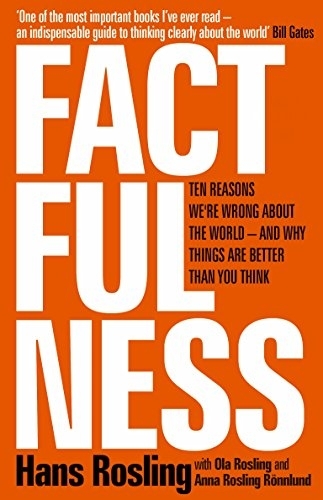I have just finished reading this book, on recommendation from the good people at smallVOICE who will be reviewing it in a few days' time. As someone who loves statistics and who can get a tad huffy when they are misused or abused, I was eager to read this book. The great thing is that you don't need to be any good at, or interested in, number, stats, or anything mathemetical. The purpose of the book is to help us to identify some of our unconscious biases and to think about how we might be more 'factful' in our thinking.
Of course it appealed to me to see myths debunked about things I have long known. But it also chastened me to realise how many other myths I have never thoguht to question.
It's a REALLY accessible book, with some nice graphics and helpful anecdotes. Well worth reading... and well worth revisiting from time to time too.
As an aside, and because of my recent reading on 'shame' I found interesting links between aspects of what we might term 'factlessness' and 'shaming behaviours' - notably generalisations and stereotypes. Actually, this should not be a surprise - the shame culture we are alert to arises from, and is fuelled by, the myths and misconceptions that lead us define anyone as 'other' or 'lesser'.
Thank you, smallVOICE crew for a great recommendation.
